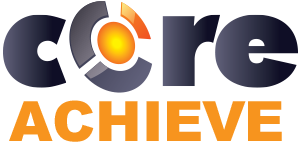Training the Organization's Next Leaders with an LMS
September, 20 2023
Other posts:
Enhancing Team Dynamics for Effective Group Decision-Making with LMS Integration
Organizations increasingly rely on collaborative efforts to solve complex problems, innovate, and adapt to change, but how do we ensure that collaboration is happening.
Maximizing Small Business Potential with Training Technology
Training technologies can push small businesses ahead of their competitors, but what are the factors that go into choosing the right technology?
Unlocking Employee Potential: The Transformative Benefits of an Interactive Learning Management System (LMS)
Interactive training allows for unlocking employee potential, but how is it done?
Building a Robust Sales Pipeline with Training
Every organization wants a streamlined sales pipeline, but building one requires a series of interlocking activities with one of the most important being training.
Strategies for Adapting In-Person Training to Online Platforms
Online training is one of the most flexible ways of delivering training across organizations, but how do you even begin to adapt in-person training into online?
Leadership is often seen as an inherent skill, but it doesn't have to be. Like everything else, leadership can be developed and an LMS can make this training more efficient and effective.
All organizations need leaders who can navigate change, inspire teams, and drive success. However, making employees into effective leaders is a dauting task, leading most organizations to look outside to new, expensive prospects. This leadership demand can be met internally, and organizations are turning to Learning Management Systems (LMS) as a means of nurturing leadership skills among their employees.
The Leadership Challenge
There’s a tendency to view leadership as an inherent trait, but leadership is a skill that can be developed. While some individuals may possess natural leadership qualities, most successful leaders undergo a process of learning and growth. However, some organizations may find it difficult to hone leadership skills, especially with the following challenges.
Leadership Succession
As senior leaders retire or move on, there is often a need for a pipeline of qualified leaders to take their place.
Adapting to Change
Leaders must adapt quickly to technological advancements, market shifts, and changing customer preferences.
Remote Leadership
With the rise of remote work, leaders must be able to lead despite the disconnect. New leaders need to excel in virtual collaboration, communication, and team management.
Diverse Workforce
Leaders need to be equipped with the skills to lead diverse, multicultural teams effectively.
The Role of LMS in Leadership Development
While a LMS won’t automatically fix those leadership challenges, it does provide tools to help address the challenges in an efficient way.
Accessible Leadership Training
Potential leaders usually undertake many responsibilities in their organization while developing their leadership skills, leaving little room for traditional training. An LMS fixes this problem with training that is accessible regardless of time or location—allowing potential leaders to train at their own pace.
Customized Learning Paths
LMS systems enable organizations to create customized learning paths tailored to the specific leadership competencies they want to develop. A leader on a factory floor may want to focus on workplace safety, whereas their counterparts in an office might have more of a slant to project management. Learning paths allow these necessary differences to be focused more on details.
Continuous Learning
Even leaders always have room to improve and the accessibility of an LMS makes it far easier for leaders in your organization to keep up with trends. Simply add the information to the LMS and they can access it while you track it.
Assessment and Feedback
LMS platforms often include assessment tools that allow leaders to evaluate their progress. Feedback mechanisms enable leaders to receive constructive feedback from mentors, peers, trainers, or even the people they’re leading.
Simulation and Role-Playing
Some LMS platforms offer simulations and role-playing scenarios that allow future leaders to practice decision-making in a risk-free environment. This hands-on experience is invaluable in developing leadership skills.
Key Components of Leadership Development in an LMS
Leadership Competency Framework
Define the leadership competencies and skills required within your organization. This forms the foundation of your leadership development program.
Content Library
Curate a library of leadership resources, including e-learning modules, videos, articles, and books. Ensure that the content aligns with your competency framework.
Mentorship and Coaching
Pair future leaders with experienced mentors or coaches who can provide guidance and support throughout their development journey.
Assessments and Feedback
Implement regular assessments and 360-degree feedback processes to track progress and identify areas for improvement.
Benefits of Using LMS for Leadership Development
Scalability
LMS platforms can scale to accommodate leadership development for large numbers of employees, making it a cost-effective solution for organizations of all sizes.
Consistency
With an LMS, you can ensure that all future leaders receive consistent training, regardless of their location or the training facilitator.
Measurable Results
LMS platforms provide robust reporting and analytics, allowing organizations to measure the effectiveness of their leadership development programs.
Retention and Succession Planning
Investing in leadership development through an LMS can help organizations retain top talent and ensure a smooth leadership succession process.
Adaptability
LMS platforms can adapt to changing leadership needs, ensuring that your leadership development program remains relevant over time.
Using an LMS to develop leadership skills for your organization will pay off in the long run. Organizations that embrace LMS-based leadership development empower their employees to become effective leaders, driving innovation, and ensuring long-term success. By leveraging the flexibility and capabilities of modern LMS platforms, you can create a pipeline of skilled leaders ready to meet the challenges of the future. Plus, if your organization already uses an LMS, why not use it for leaders?
Get started with CoreAchieve today for free.
Photo by Kobu Agency on Unsplash

Leave comment: